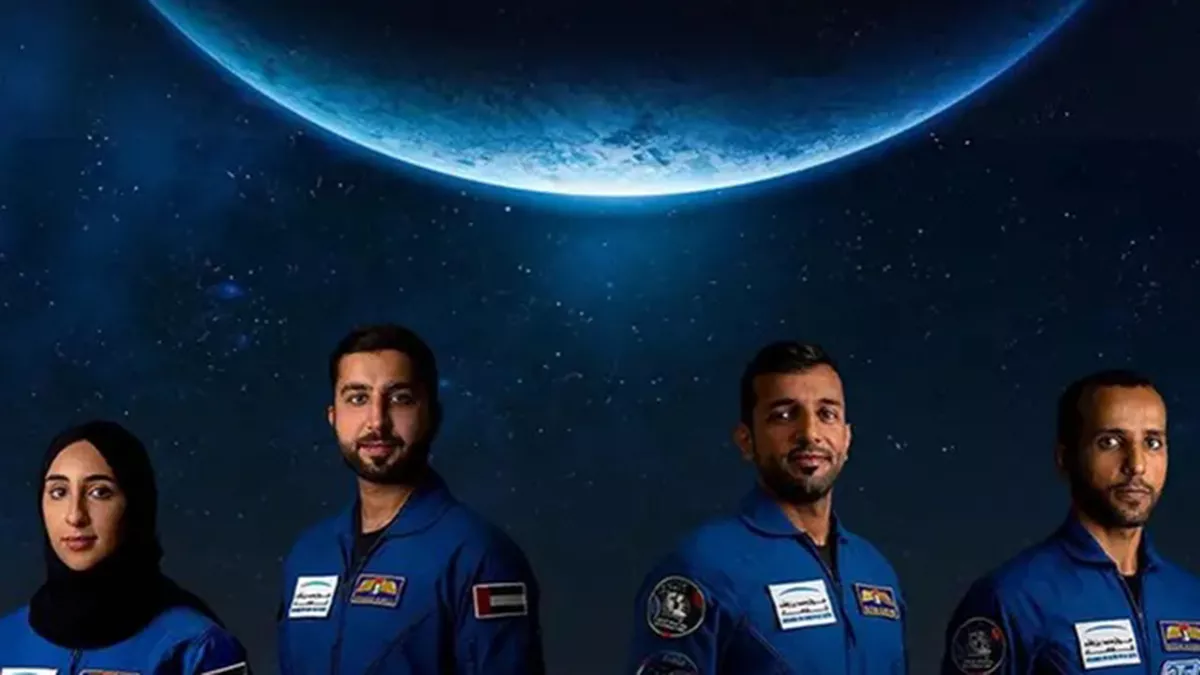UAE Astronaut Programme; aims to develop a national scientific corps and prepare a national team of astronauts
04 Sep 2023
News
The UAE Astronaut Programme, launched in 2017, trains Emirati astronauts for human trips to the ISS and other space stations. The curriculum, which is the first of its type in the Arab world, gives Emirati cadres the training, knowledge, and credentials they need to represent the UAE and the Arab world in future space missions and to perform scientific research that aids in the process of space exploration throughout the world. In order to support the UAE's vision of a prosperous future built on knowledge and scientific research, the UAE Astronaut Programme aims to build a national scientific corps, train a national team of astronauts, strengthen the UAE's position in the international space sector, and inspire and motivate young people to succeed in STEM fields.
The programme, which is run by the Mohammed bin Rashid Space Centre (MBRSC) and supported by the Telecommunications and Digital Government Regulatory Authority (TDRA) ICT Fund, intends to encourage ICT sector research and development in the UAE and further the integration of the nation on the international arena. From a pool of 4,000 hopefuls that applied to the UAE Astronaut training in 2018, astronauts Sultan Al Neyadi and Hazza Al Mansoori were chosen to represent the inaugural batch of the training. The UAE will launch its first research mission to the International Space Station (ISS) on September 25, 2019, with Hazza Al Mansoori serving as the mission's lead astronaut and Sultan Al Neyadi serving as a reserve. The mission, dubbed "Zayed's Ambition," made the UAE the 19th nation overall and the first in the Arab world to visit the ISS.
Al Mansoori and Al Neyadi started their journey at the Yuri Gagarin Cosmonaut Training Centre at Star City in Moscow, in accordance with an agreement with Roscosmos, and underwent training exercises that were especially tailored to the needs and duration of the mission. They also obtained training as a result of collaboration agreements with important space organisations including NASA, ESA, and JAXA in Houston, Texas, and Cologne, Germany.
The training programme for the ISS mission included in-depth instruction on how to operate all ISS systems and components, emergency fire drills, how to handle ammonia and low pressure leaks inside the station, as well as survival training in case the capsule had to land in a chilly forest. The spacesuit, which may weigh up to 10 kg, and how to wear it in zero gravity were other topics of training for the astronauts. More than 90 courses and more than 1,400 hours of training were completed by the astronauts. A total of 31 scientific experiments were carried out by Al Mansoori, 16 of which were carried out in conjunction with foreign space organisations including NASA, Roscosmos, the European Space Agency (ESA), and the Japan Aerospace Exploration Agency (JAXA). As a part of the MBRSC's Science in Space project, 15 of these experiments engaged schools throughout the UAE.
As a result of Al Neyadi's mission's success, the Programme will move into a new phase of planning for next space missions with the aim of advancing scientific research, playing its part in assisting international efforts to explore space for the benefit of humanity.
